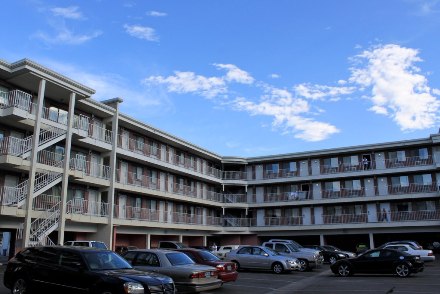San Diego Law Enforcement Warns that Hotels Could Be Used For Bomb-making Labs
What do a slow cooker, a pack of coffee filters, and a chemical peel have in common? Probably nothing, unless you're in the illegal bomb-making business.
In a bulletin dated from March, but published yesterday (Wednesday, July 13) byPublic Intelligence, the San Diego Law Enforcement Coordination Center (SLECC) warns that a combination of those and other household items could indicate the presence of a mobile bomb-making lab. Overseas cases have increased, the bulletin warns. Whether that means the trend will move to the United States is not known, but already there was the case of Najibullah Zazi, who booked a suite in New York city to make peroxide-based explosives, notes the bulletin. Luckily, he was caught before he could do anything with them.
Hotels are ideal for illegal labs – be it formeth or bomb making– because they provide an inexpensive and low-profile place to set up a mobile operation.
Often terrorists are working with various chemicals in rudimentary labs, so the compounds are often unstable. Hotel rooms allow them to set up labs fairly close to their targets without detection. Proximity to targets helps decrease travel time, which in turn decreases chances for premature detonation.
In addition to the Zazi case, the report provides other examples of terrorists using hotels to assemble bombs, including Lors Doukaiev, who was injured when a bomb he was assembling in his Denmark hotel room detonated.
It helps if nonsecurity personnel, such as hotel staff, are also trained to look for signs of suspicious guest activity, because security personnel are "limited in number,” Elinor Garely, a travel writer and business management professor at the City University of New York told Security Management in 2009 on hotel security ( Ensuring an Uneventful Stay, April 2009).
“Housekeeping staff should be trained to notice anything out of the ordinary in guest rooms,” the article states.
Some indicators of terrorist activity in hotels are requests for specific rooms or floors in hotels, unusual interest in hotel staff operating procedures, refusal of housekeeping services for long periods of time, extending departure dates one day at a time for long periods of time, and leaving the property for several days at a time and then returning.
